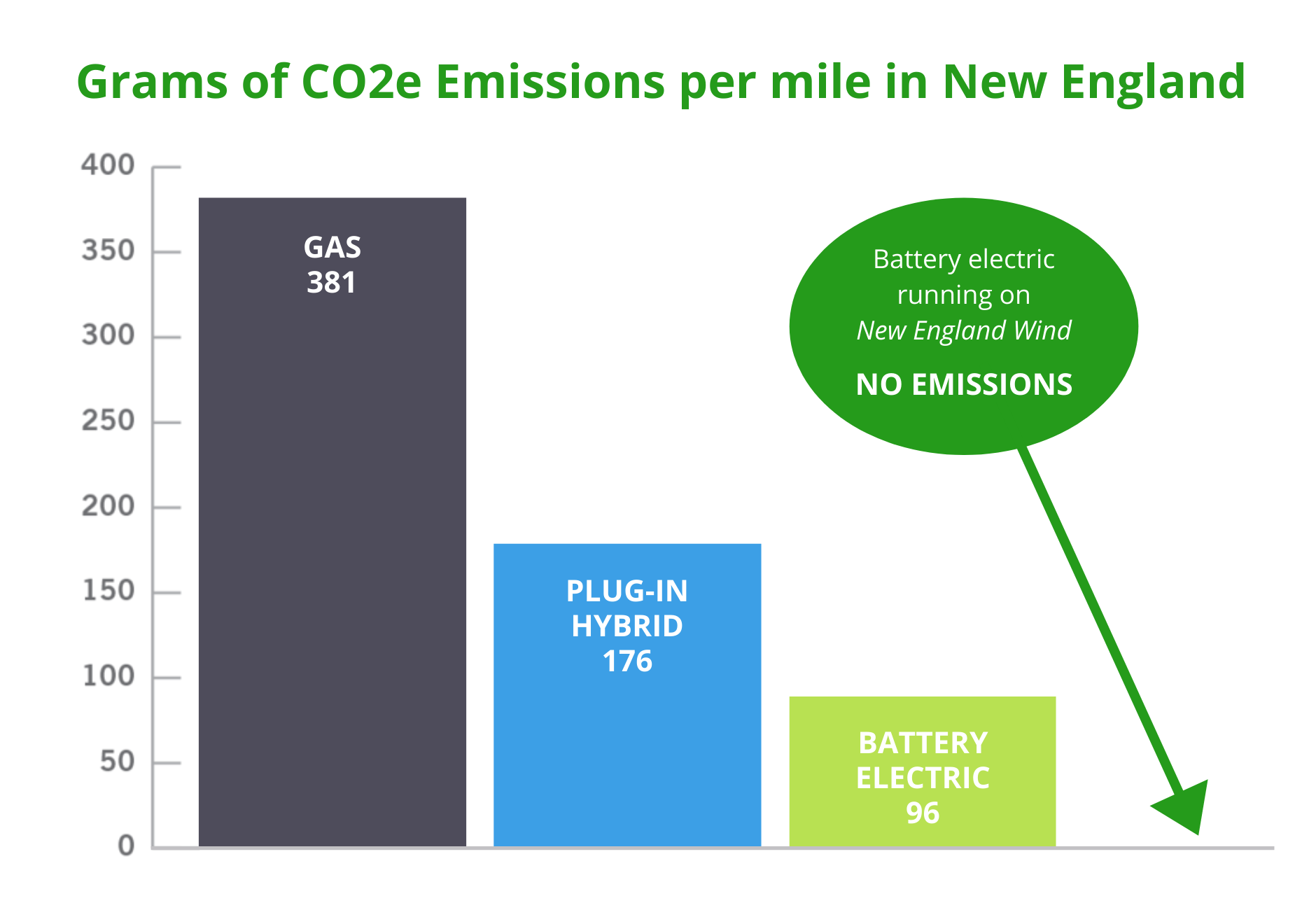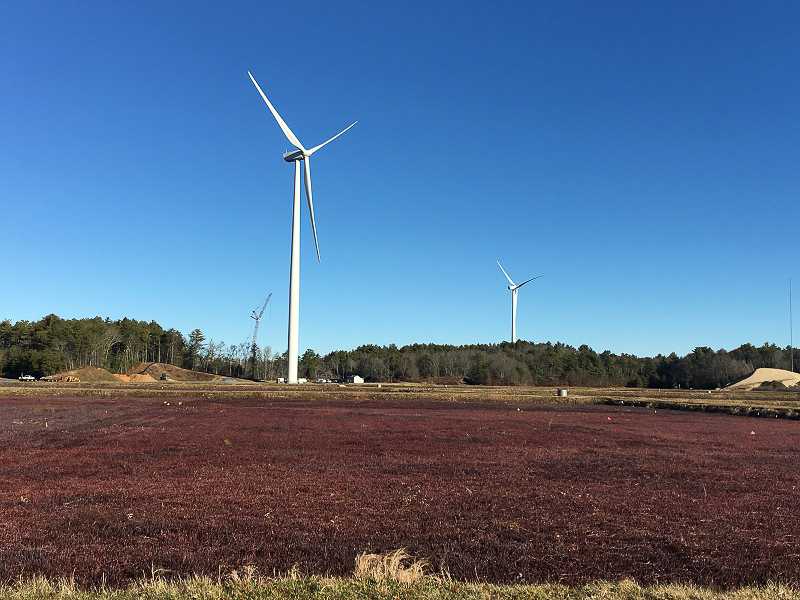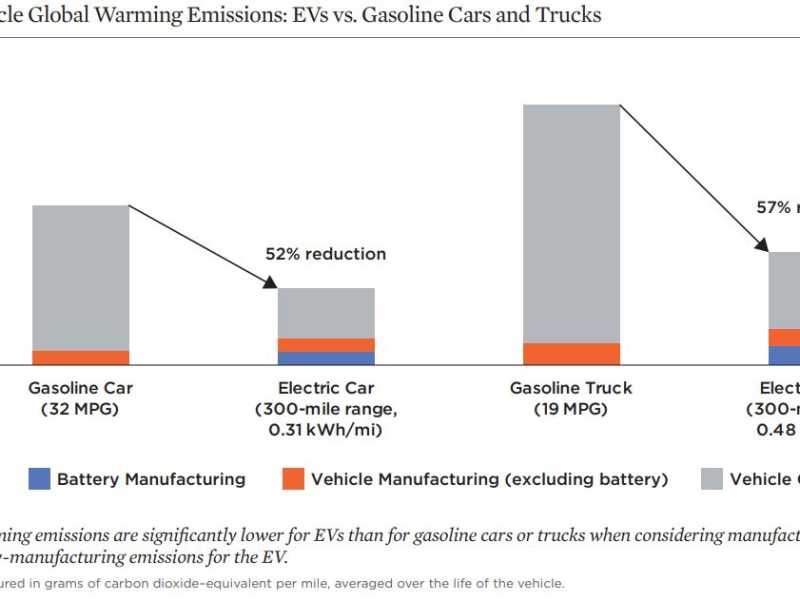Electric vehicles are a great choice for the environment. EVs are much cleaner than gas-powered cars, which is good news for our climate and for our health.
Impact Of Gas-Powered Cars
Gas-powered cars are a leading cause of climate change. Nationally, transportation accounts for 28% of our greenhouse gas emissions, more than any other sector. Historically, electricity generation was the largest source of greenhouse gas emissions, but thanks to advances in energy efficiency and cleaner energy supply (i.e. more wind and solar, less oil and coal), that is no longer the case. In Massachusetts and Rhode Island, transportation is now the leading source of greenhouse gas emissions, at around 40%.
The consensus among energy experts is that in order to reduce greenhouse gas emissions sufficiently (80% below 1990 levels by 2050 and 40% by 2030), we must rapidly increase adoption of EVs.
Benefits Of Electrifying Transportation
Switching from a gas-powered car to an electric vehicle has huge environmental and public health benefits. A vehicle running only on electricity has zero tail-pipe emissions. Even if you account for the emissions associated with producing the electricity to charge them, electric vehicles charged with electricity in New England produce far fewer greenhouse gas emissions than vehicles powered by internal combustion engines.
The Union of Concerned Scientists has done the math and has a great EV Emissions Tool on its website. You can plug in your zip code and any make and model of EV to find out what emissions it would be responsible for, per mile driven.
On average, emissions of different types of EVs in Massachusetts and Rhode Island are (data from UCS' EV Emissions Tool) significantly lower than gas-powered vehicles:

In addition to substantially reducing greenhouse gas emissions, electric vehicles significantly cut down on the pollutants released by gas-powered cars that cause so many public health problems.
In sum, the benefits of electric vehicles are huge: we cannot meet our climate goals without them and they are crucial to bettering our public health. Though our Drive Green program focuses on passenger vehicles, we are strong proponents of electrifying everything, particularly public transportation.

Experts agree: we need to electrify transportation.
Several reports lay out the importance of electrifying transportation in order to decarbonize the economy.
- Northeastern Regional Assessment of Strategic Electrification
Synapse Energy Economics in July 2017 - “Electric vehicles and heat pumps are key to achieving significant emissions reductions”
Energy Consumer’s Bulletin on Apr 17, 2016 - "Plug-In Electric Vehicle Cost-Benefit Analysis: Massachusetts"
MJ Bradley on Nov 17, 2016
EV Benefits Increase Over Time
The environmental benefits of electric vehicles will only get better with time. Why?
- Newer models of electric vehicles are more efficient in terms of the number of miles they can drive per kilowatt-hour of electricity, and we expect this trend to continue.
- Our New England electric grid is getting greener with each passing year, thanks to laws like the Massachusetts Renewable Energy Portfolio Standard and Rhode Island Renewable Energy Standard. They require electricity suppliers to increase their renewable energy content each year.
- Communities in Massachusetts and Rhode Island are choosing to aggregate their electricity purchasing for ratepayers, saving money and providing the option to support the development of renewable energy beyond what is required by state law.
Learn more from our April 2021 blog post, Electric vehicles get cleaner every year. Here's how.
But what about the battery?
Electric vehicles offer clear greenhouse gas emissions reductions compared to gas-powered cars. However, lithium-ion batteries degrade over time, and at some point, after many years of use, an EV and its battery will need to retire. Many people are rightly concerned about what will happen as more and more used EV lithium-ion batteries are reach the end of their useful lives. We have been following this issue and see that markets are already developing for the beneficial reuse and recycling of spent EV batteries.
In terms of reuse, there are policies and markets developing already for stationary storage using repurposed lithium-ion car batteries because data shows that lithium ion batteries often outlast the life of the car. As we add more renewable energy to our electric grid, we will need more stationary storage to provide power when it’s not windy or sunny. We are already seeing the solar industry embrace storage. We anticipate that carmakers will become big players in this market as well.
We can also recycle the metals and other ingredients in the car battery. As with storage, a whole new industry can grow up over time as EVs proliferate.
Imagine buying or leasing an EV today and getting cash back when it’s time to trade it in for a newer model because of the value of the battery for either reuse or recycling! We’re not promising that, but we see it as a strong possibility.
See below for two excellent articles explaining the various ways that the “old EV battery” problem is likely to be solved.

"Where 3 Million Electric Vehicle Batteries Will Go When They Retire"
Article from Bloomberg Businessweek on June 27, 2018

"How Electric Vehicle Batteries Are Reused Or Recycled"
Article from Union of Concerned Scientist on October 25, 2023
Lifecycle Analysis
There are emissions associated with the manufacture, use, maintenance, and disposal of all vehicles. How do electric cars compare to gasoline cars over the entirety of their useful lives? Check out this cool video from the Union of Concerned Scientists (UCS) about the lifecycle impacts of an electric car vs. a gas-powered car. Two things to note before you watch:
- This video uses national data: since our electric grid in New England is cleaner than the national average, the benefits of electrification are much bigger than portrayed in this video.
- This video is already old! Newer electric cars have more efficient batteries and longer ranges and our electric grid is already cleaner than it was a couple years ago, so, again, the benefits of electrification are much bigger than this video will lead you to believe.
For more information, you can read UCS' 2015 Cleaner Cars from Cradle to Grave report.

Compare life cycle emissions and total cost of ownership of different vehicle types.
MIT's Trancik Lab developed an awesome tool, Carboncounter, that allows you to compare the greenhouse gas emissions (lifecycle gCO2eq/mile) with the costs (vehicle, fuel, and maintenance) of available vehicle types. Check it out here.
You can compare different vehicle types (internal combustion engines, hybrids, plug-in hybrids, battery-electric vehicles, etc.) or look up where a specific vehicle falls on the spectrum.

Lifecycle Emissions for EVs compared to gasoline vehicles
Union of Concerned Scientists (UCS) recently published this figure in their latest report regarding emissions comparing electric and gasoline vehicles. Even though electric vehicles have an extra battery manufacturing component, their overall emissions is half of their gasoline counterpart due to the emissions from vehicle operation.